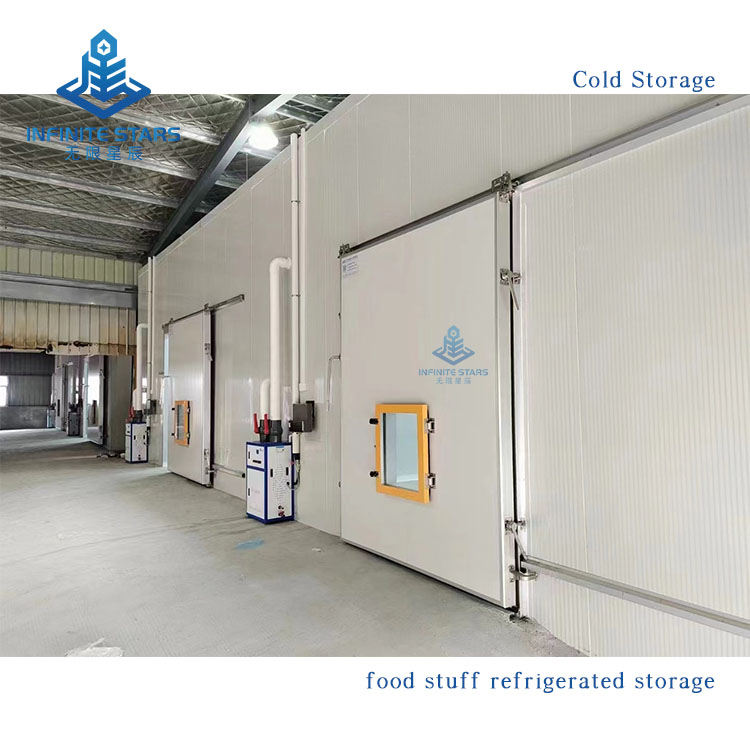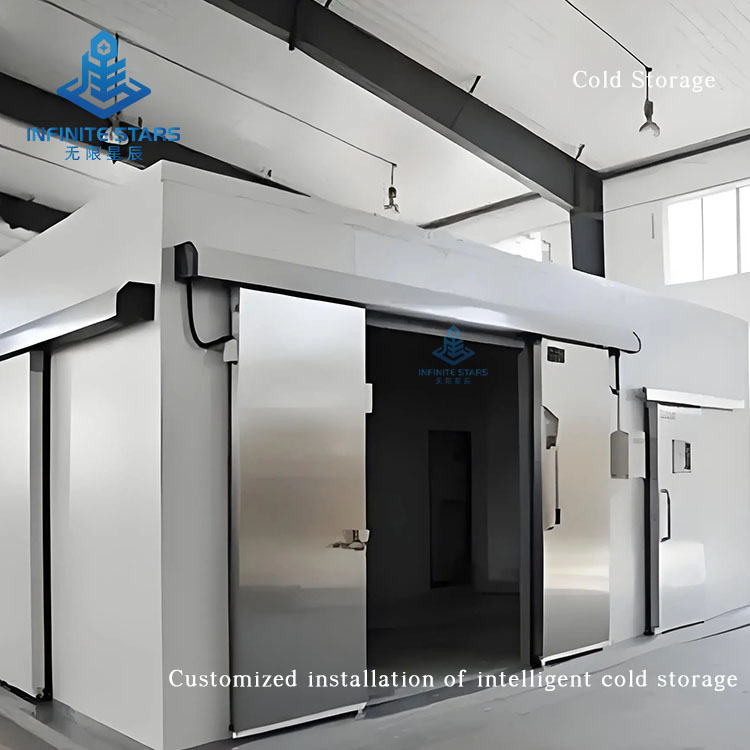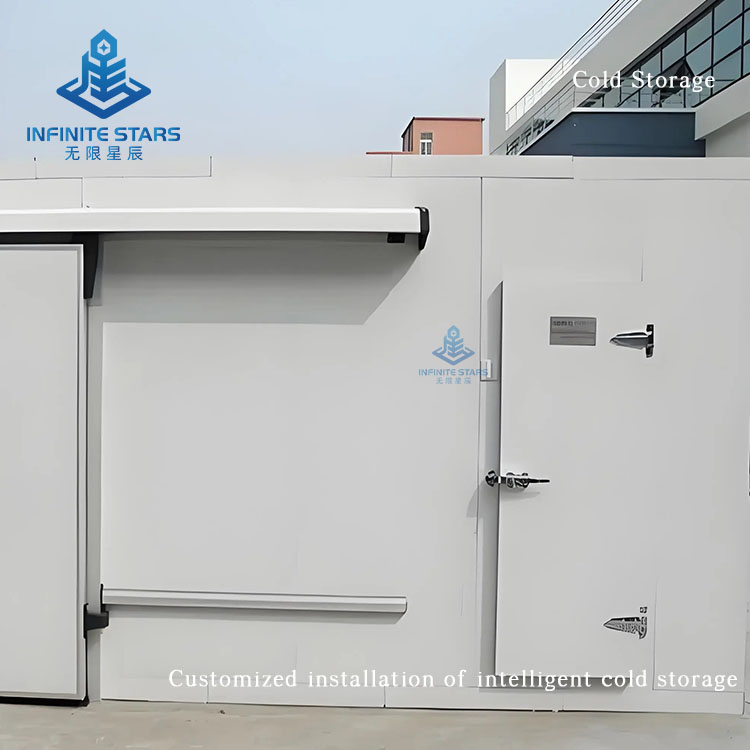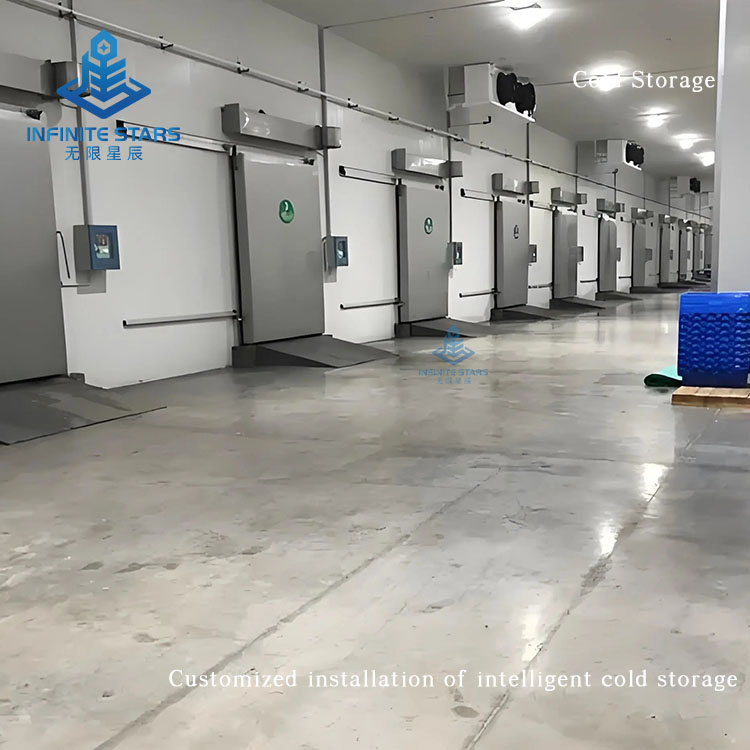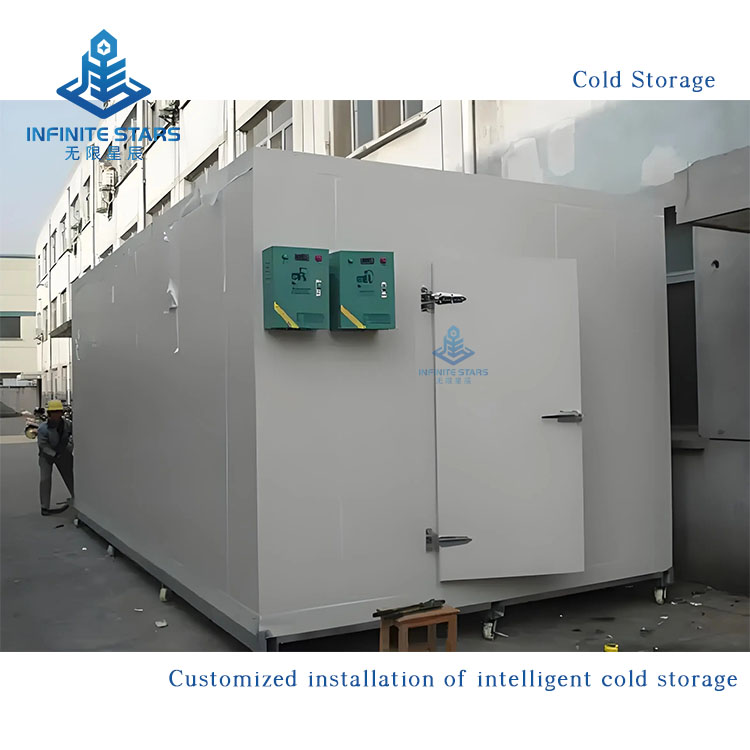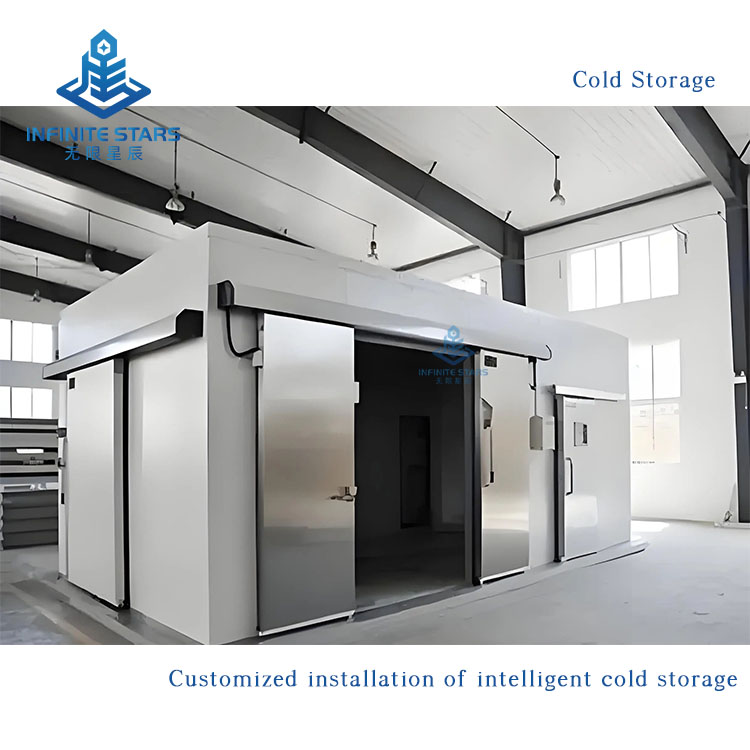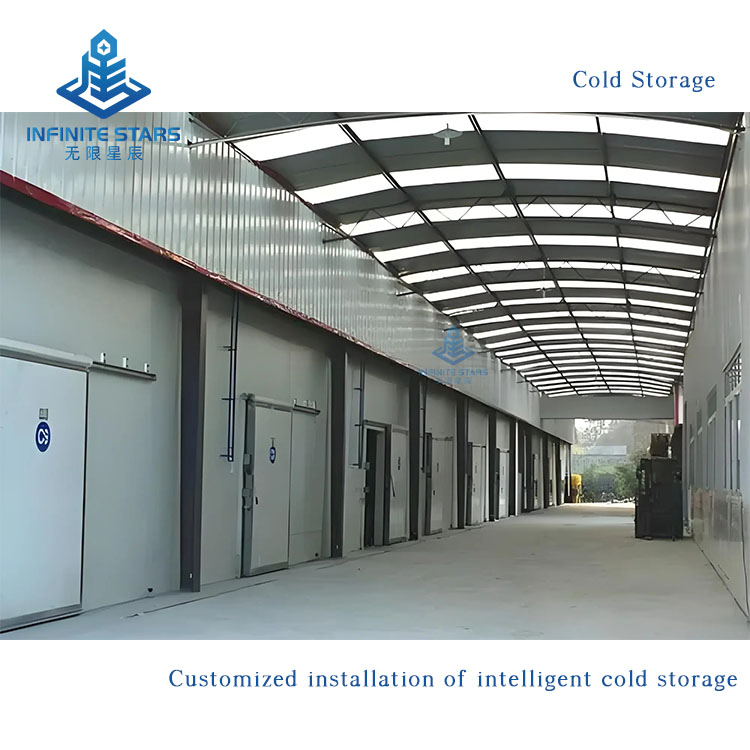Customized Installation Of Intelligent Cold Storage
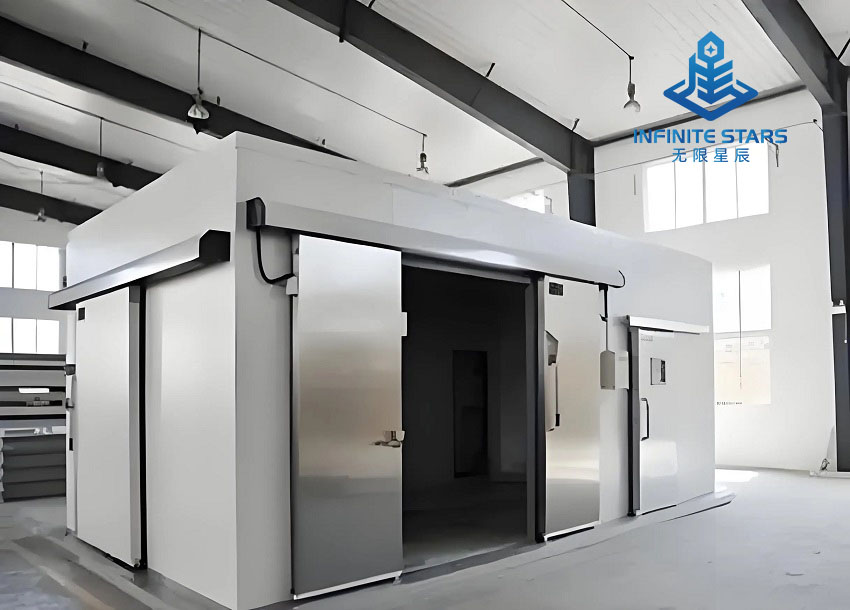
Features of Intelligent Control Systems in Cold Storage
Intelligent cold storage systems integrate advanced information technology, the Internet of Things (IoT), artificial intelligence (AI), and automation to significantly enhance the efficiency and reliability of traditional cold storage. Below are their key characteristics:
1. Precise Temperature & Humidity Control
Multi-Zone Independent Regulation: Real-time monitoring of temperature and humidity in each zone via sensor networks, with automatic adjustment of refrigeration equipment to meet the specific storage requirements of different goods (e.g., frozen food, pharmaceuticals).
Dynamic Response: Rapid adaptation to sudden changes (e.g., door openings, goods movement) to minimize temperature fluctuations and prevent quality degradation.
2. Automated Operation & Energy Efficiency Optimization
AI-Driven Scheduling: Optimizes the operation of compressors, fans, and other equipment based on internal load and external conditions (e.g., seasonal changes), reducing energy consumption by 20%-30%.
Predictive Maintenance: AI analyzes equipment data to detect potential failures (e.g., condenser blockage) in advance, minimizing downtime.
3. Remote Monitoring & Management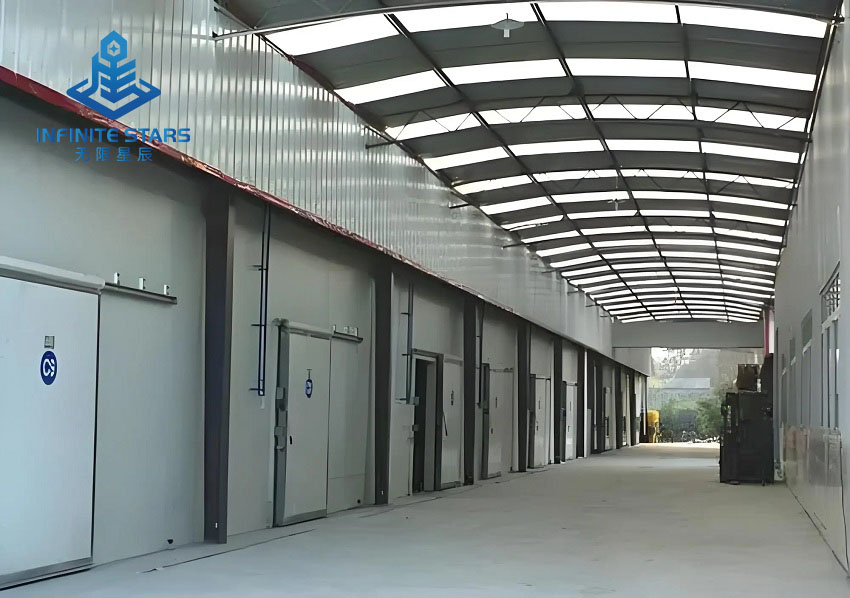
Cloud Platform Access: Enables remote monitoring of cold storage status (temperature, inventory, energy usage) via smartphones or computers, with real-time alerts for anomalies (e.g., power failure, temperature deviations).
Data Visualization: Generates operational reports to support decision-making (e.g., adjusting usage during peak electricity hours).
4. Intelligent Inventory Management
RFID/Barcode Tracking: Automatically records entry/exit times and expiration dates, ensuring First-In-First-Out (FIFO) inventory rotation and reducing human errors.
Inventory Alerts: Automatic notifications for low stock or near-expiry items to prevent shortages or waste.
5. High Reliability & Safety
Redundancy Design: Backup systems for critical equipment (e.g., refrigeration units) ensure seamless operation during failures.
Safety Mechanisms: Smoke detection, access control integration, and emergency protocols (e.g., automatic alarms and fail-safes).
6. Modularity & Scalability
Flexible Layout: Allows expansion of storage capacity or adjustment of temperature zones (e.g., adding frozen or ambient zones) based on business needs.
System Compatibility: Integrates with ERP, WMS, and other enterprise systems for supply chain coordination.
7. Eco-Friendliness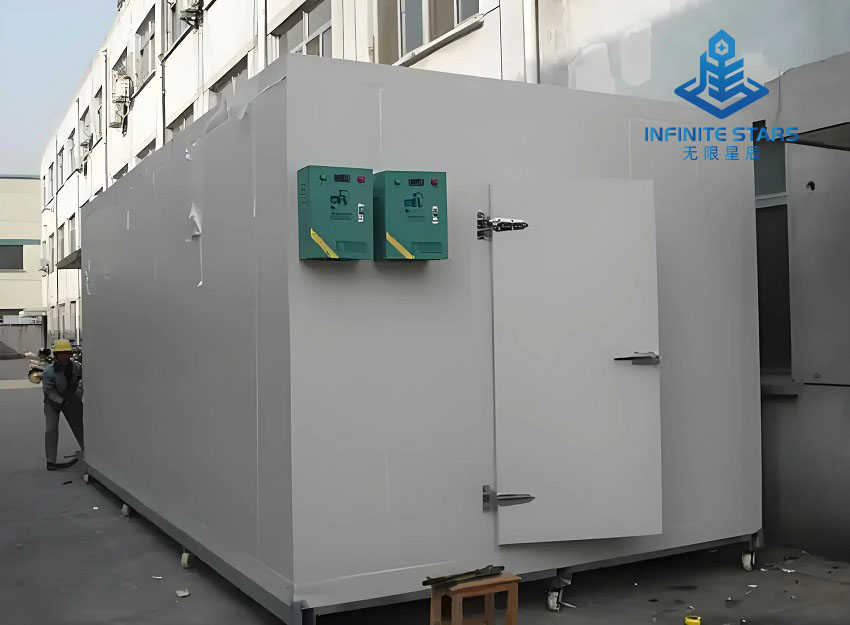
Low-GWP Refrigerants: Uses environmentally friendly refrigerants with low Global Warming Potential (GWP), complying with regulations.
Energy Recovery: Waste heat utilization (e.g., defrosting heat recovery) further reduces carbon emissions.
Typical Applications
Pharmaceutical Cold Chain: Complies with GSP standards, ensuring strict temperature control for vaccines and biologics.
Fresh E-Commerce: Maintains freshness of produce and seafood, reducing spoilage rates.
Central Kitchens: Manages semi-finished goods storage for catering and distribution.
Summary of Advantages
By replacing traditional manual management with data-driven automation, intelligent cold storage achieves breakthroughs in energy efficiency, precision, and operational efficiency. It is particularly suited for modern cold chain logistics requiring strict temperature control and large-scale operations.








